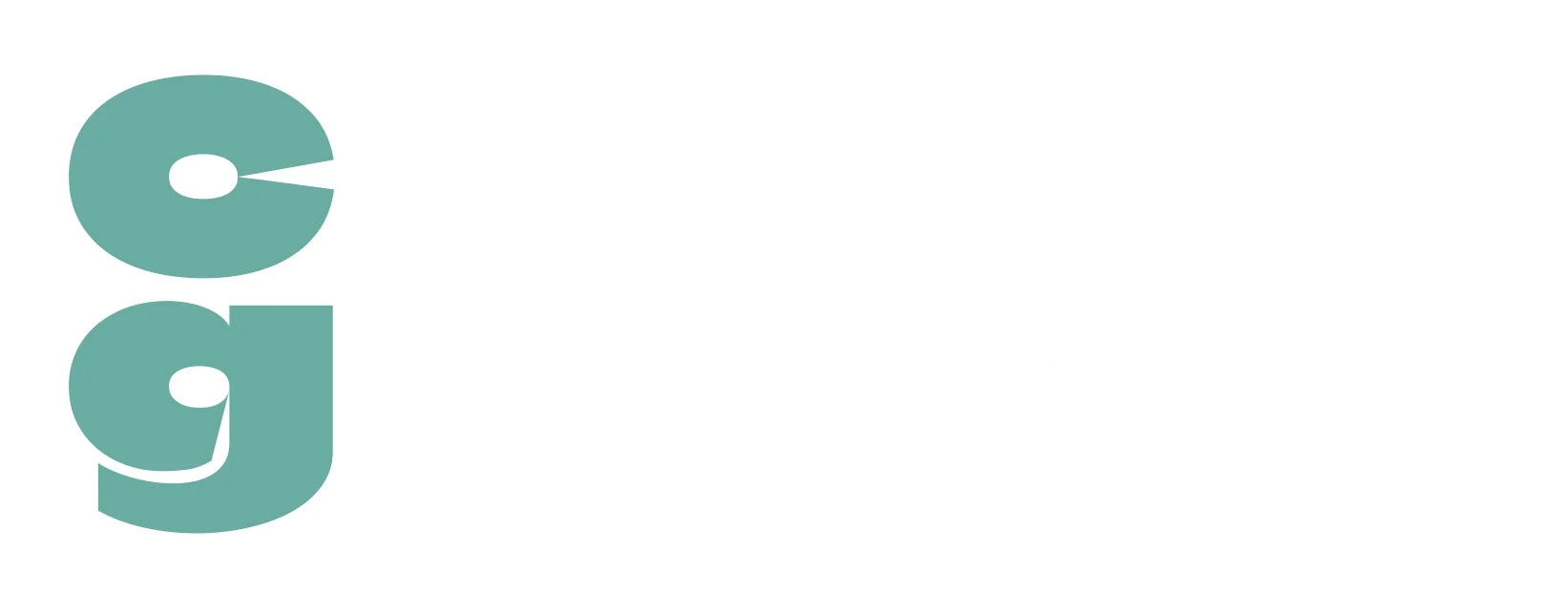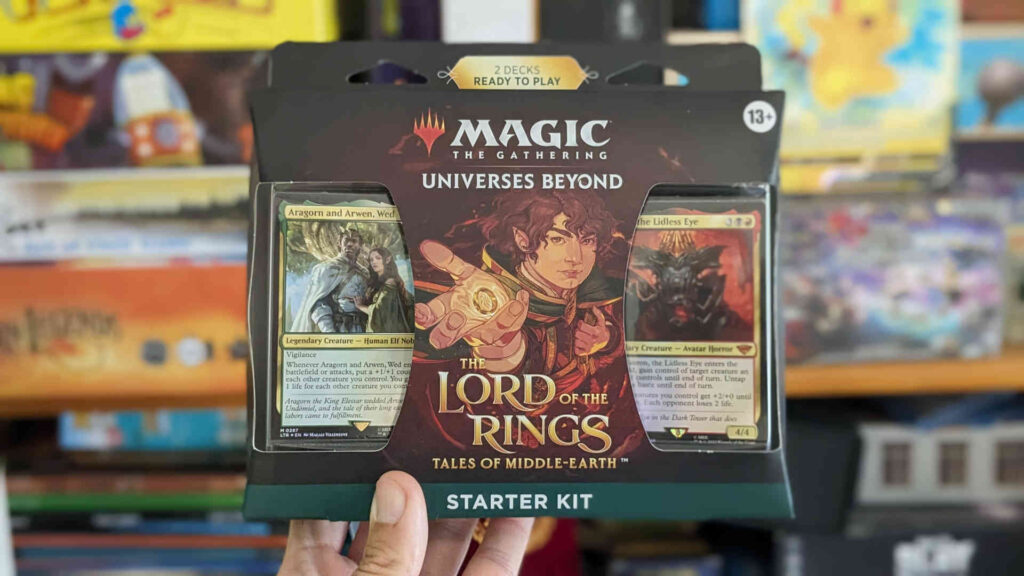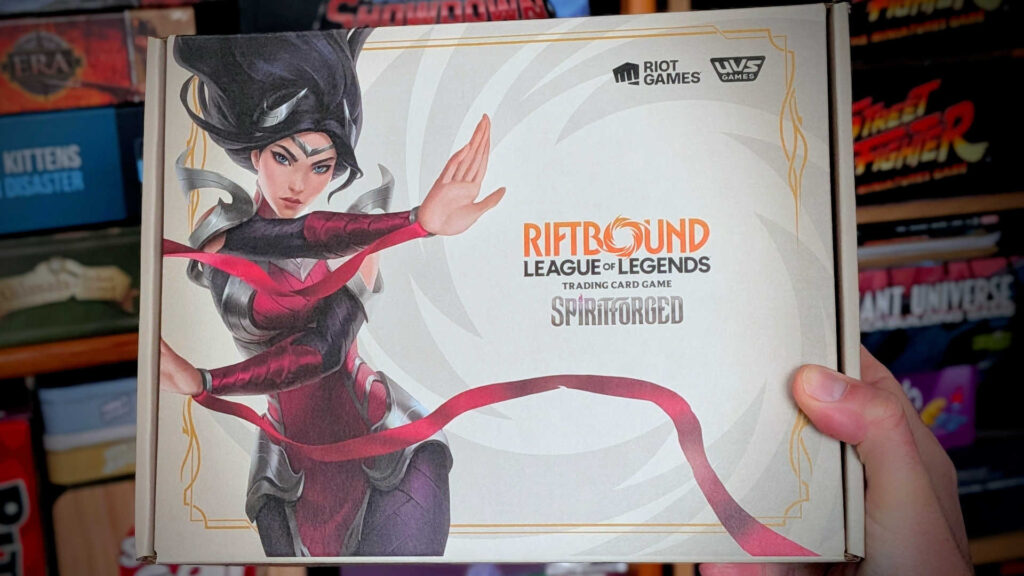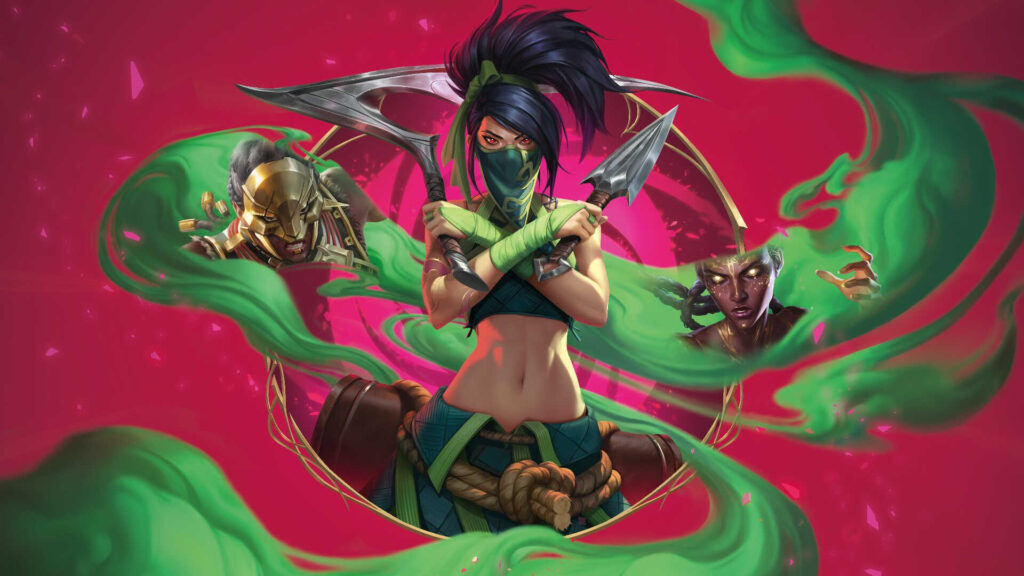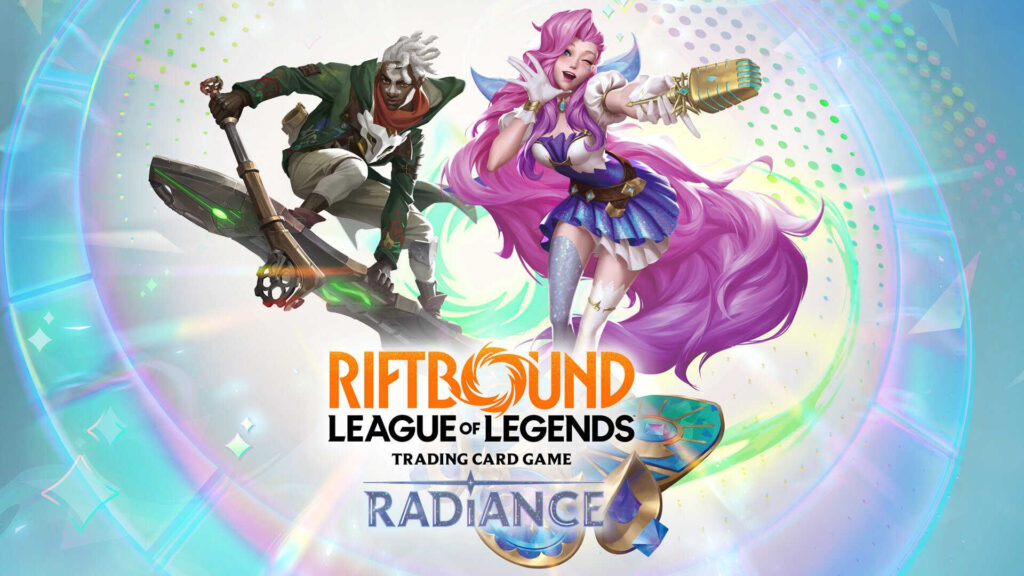As it’s been around since 1993, collectable card game (or CCG) Magic: The Gathering (itself often shortened to MTG) can be quite intimidating for newcomers.
Not only do sets come out at a pretty phenomenal rate, but each set also has numerous booster pack types and decks created for that specific release – making it difficult to know when or how to jump on board.
Especially as many sets are following a long term storyline, set across one or more of the planes of Magic’s multiversal setting; not only that, but the turbo-charged rate at which new sets are released sees even long term fans struggling to keep up at times too.
That’s without even considering that new players need to find a way to learn the game in a way that keeps them interested and without dissuading them from persevering too.
So believe us, we here at Card Gamer know and understand how MTG can look and feel to outsiders.
For that reason, we’ve put together a handy guide to ensure that your first steps in MTG allow you to ease yourself into the endless joys and wonders of planeswalking, deckbuilding and commanding!
Table of Contents
Toggle1. How Do I Learn To Play MTG?
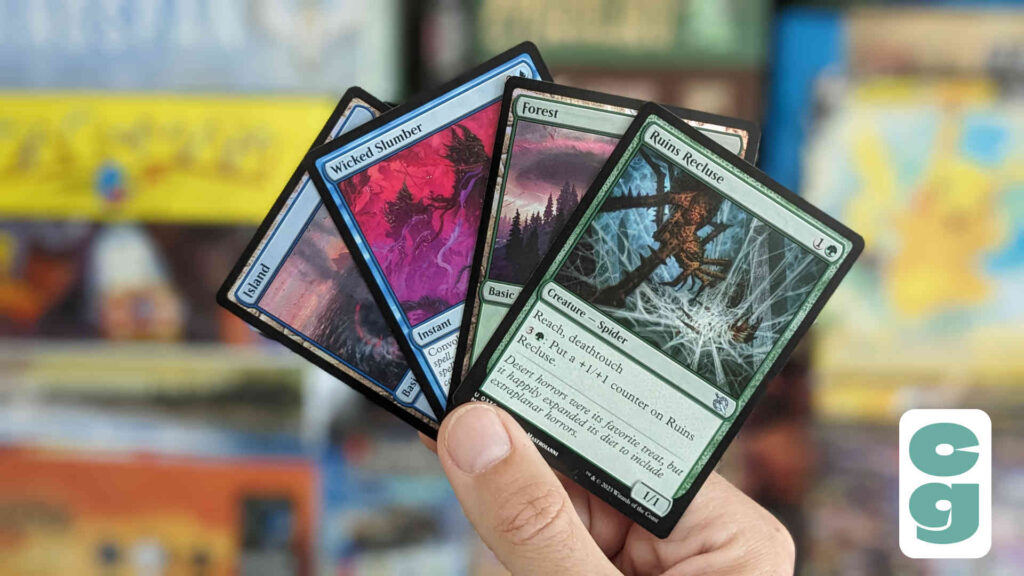
As we’re so considerate, we’ve already covered this in our how to play Magic: The Gathering article.
Though this won’t cover you for every keyword, timing clarification or rules question, what that article will do is give you the basic outline of how to set up your game, how a turn works and the basics of combat.
It’s more than enough to get you started, but there are other options.
We’d recommend learning to play MTG from a seasoned player – perhaps you have a friend who’s into the game that could teach you, or maybe you could ask for a bit of assistance at a friendly local game store (known to us fans as the good old FLGS).
What’s great about learning from a friend or an FLGS is that you’ll be getting your introduction from someone who’s already enthusiastic and knowledgeable about MTG; they’ll be able to talk you through the game, step by step, likely using cards to do so.
Though our article is a great way to familiarise yourself with the basics, there’s nothing quite like learning in person, if that’s an option that you can choose!
There’s also MTG Arena, the digital version of Magic: The Gathering.
Working your way through the tutorial on MTG Arena is a brilliant, practical way to learn the game as you play.
Not only that, but once you’ve played through the tutorial you’ll get a set of decks to try out in the digital game too!
2. What Is The Best Starting Point For Two New Players?
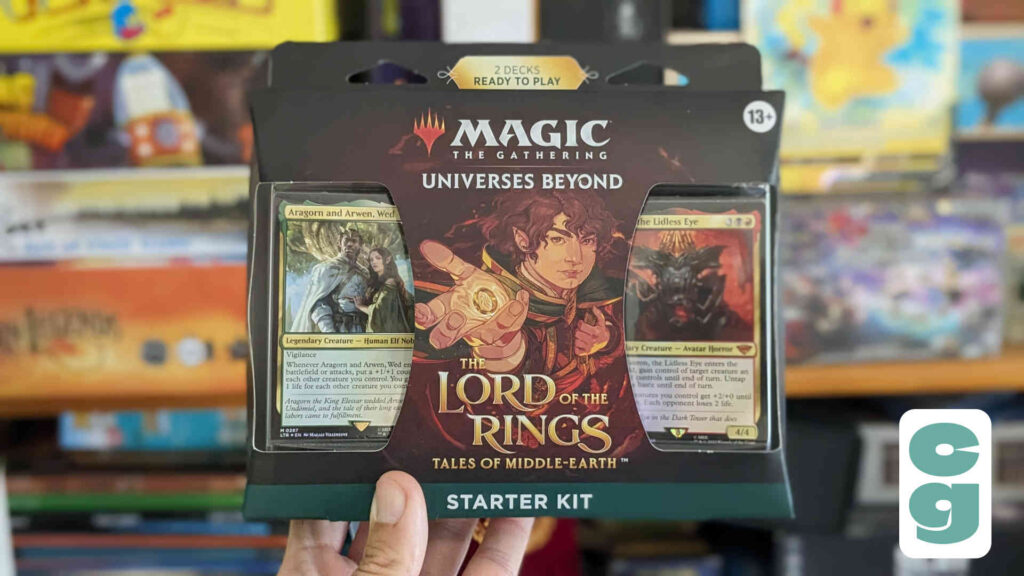
If you don’t have someone to teach you – and you’re just starting out with an opponent who’s never played or learned the game either, then the best place to start is with MTG’s Arena Kits.
These offer enough cards for two players to get started, but they also feature a clever tutorial that take you through the first few rounds of a game of MTG, step by step.
The cards included in these decks are usually very straightforward to use – and won’t have a bewildering number of keywords or effects to keep track of either.
The Lord of the Rings Starter Kit is one of the very best of these kits, as it contains two full 60 card decks, as opposed to the slightly smaller decks usually found in MTG Arena Kits.
Even better, all of these kits – including the Lord of the Rings Starter Kit – also have codes in the pack, which allow players to unlock each of the kit’s two decks in MTG Arena – so once you’ve played and familiarised yourself with the cards in real life, you can take them onto the virtual tabletop too!
Check out our how to redeem MTG Arena codes article for more on that.
3. What MTG decks or packs should I get once I know the basics?
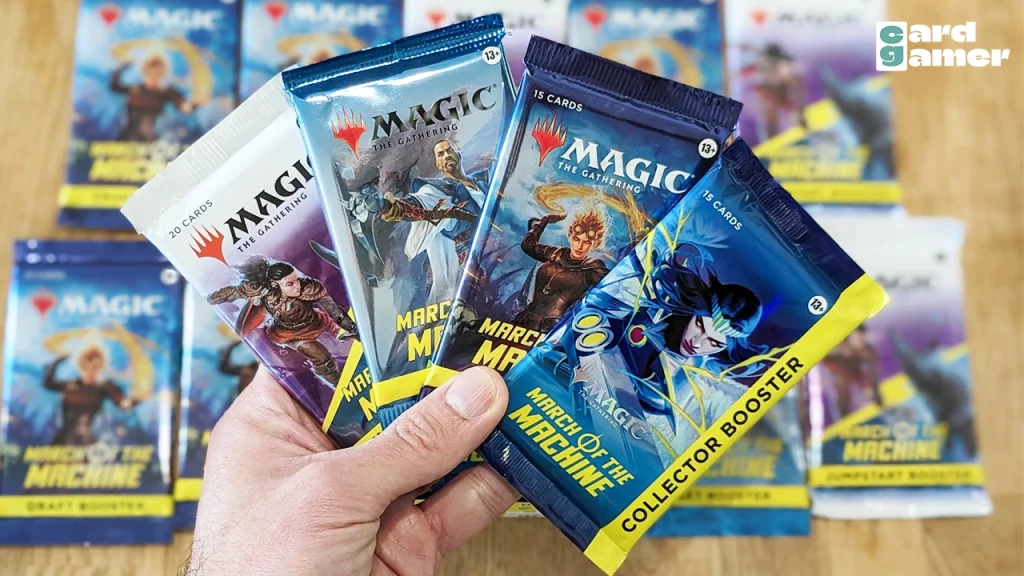
As mentioned above in our introduction, there’s an awful lot of different pack types, for any number of sets, on sale at a time when you check MTG out in stores or online.
Knowing which ones are right for you is really important.
Not only do decks come in a variety of sizes and types, but booster packs also have numerous different names and purposes too.
In terms of booster packs, you can check out our Magic: The Gathering Booster Pack Types article for an explanation of all of them, but we’re going to focus on just one type of booster for the absolute beginner.
4. What Is A Jumpstart Booster Pack?
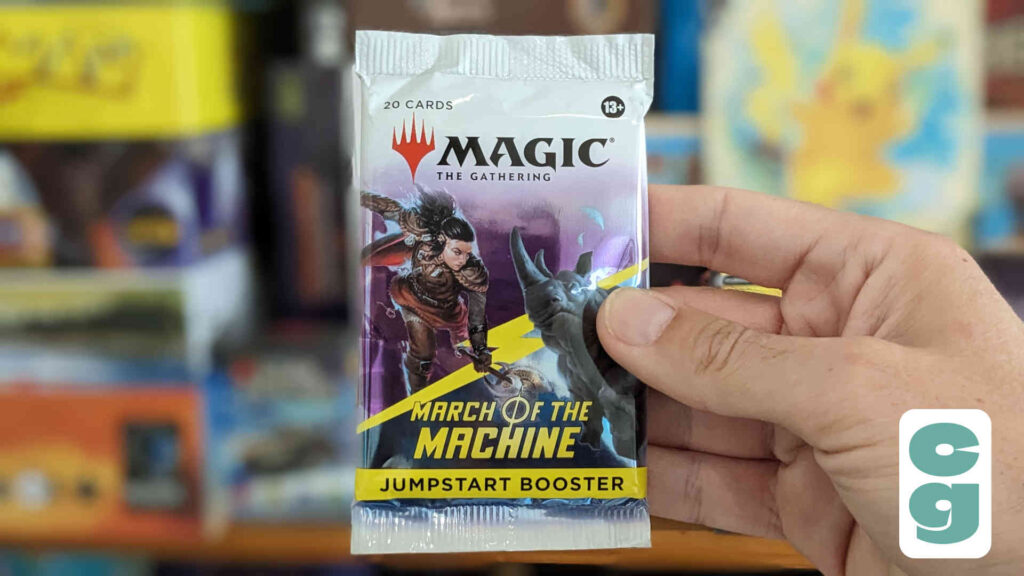
That’s right – the booster pack type we’re checking out is called a Jumpstart booster.
These are specifically designed to be played straight from the pack; there’s no messing around with deckbuilding – which, though it’s a huge part of what MTG so appealing, is a concept that takes a little while to get your head around.
In order to put together a deck from Jumpstart boosters, all you need are two packs.
That’s right: any two Jumpstart booster packs can be opened and used to create a single, 40 card deck.
Though decks in a standard game of MTG are comprised of 60 cards, in a Draft-type game where decks are built straight from boosters, the 40 card format is used – you can read more about this, when you’re ready, in our how to draft in Magic: The Gathering article.
Jumpstart is essentially a Draft, though the decision making element of a Draft is removed.
5. How To Use Jumpstart Boosters To Create A Deck
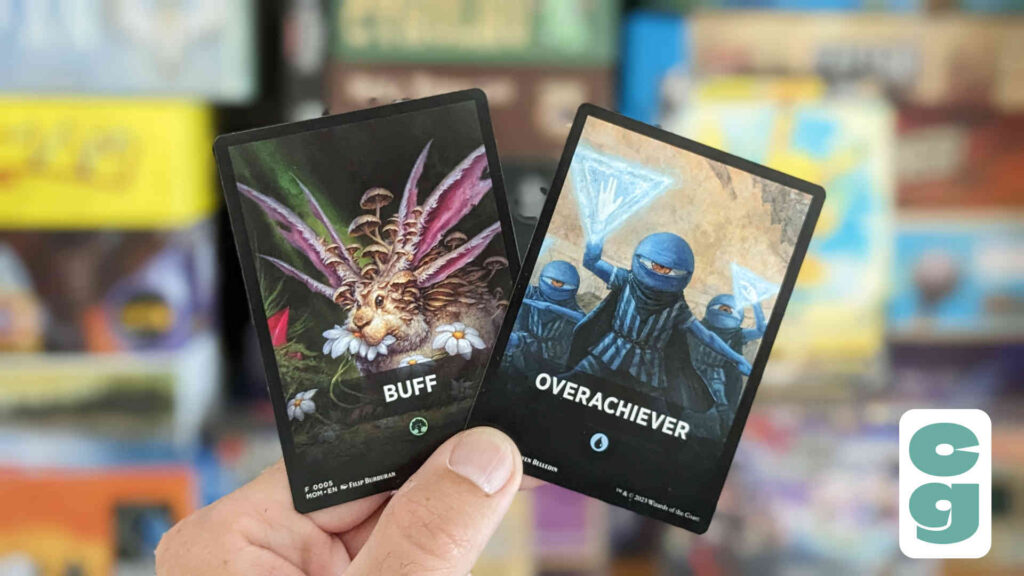
When you open a Jumpstart pack, you’ll find a special card that tells you the name of the set you’ve opened, which also shows you its colour too.
Remove this card – it’s the only one you won’t need – and set the first pack’s cards aside.
Then open your second pack and repeat the process.
Don’t worry if you couldn’t get two Jumpstart boosters from the same set; any single Jumpstart booster from any set can be combined with another Jumpstart booster to create a deck.
Once you’ve removed the booster’s set card, you can shuffle the contents together with your first booster’s cards and voila: you now have your deck ready to play!
6. Are Jumpstart Booster Pack Cards Suitable For Beginners?
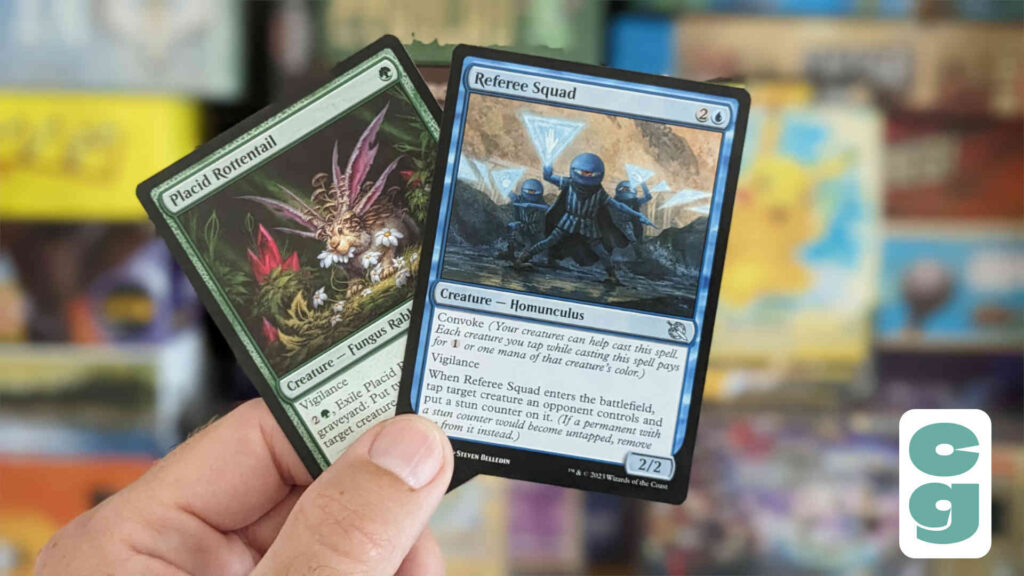
I would urge caution here; if you’re buying Jumpstart Boosters from a specific set – say, as an example, March of the Machine – do be aware that the cards will feature mechanics, keywords and concepts from the themes of the overall set.
In March of the Machine, this can mean lots of different tokens being created and even the potential for those tokens to be double-sided (you can read more about these in our how to use double-faced cards in Magic: The Gathering guide) or to need power and toughness bonuses to be tracked on different cards.
Some of these mechanics may be difficult for entirely new players to get their heads around, so it may be advisable to eplay with an experienced opponent who can help you keep track of card effects and tokens – or to use specific dice (check out our best dice for MTG article for more detail on this), which are also immensely helpful.
Or go for a specifically tuned Jumpstart booster which isn’t tied to a particular set – these are usually more beginner friendly; for example, the Jumpstart 2022 booster packs are a perfect entry point for players.
7. What’s Next After Trying Jumpstart in MTG?
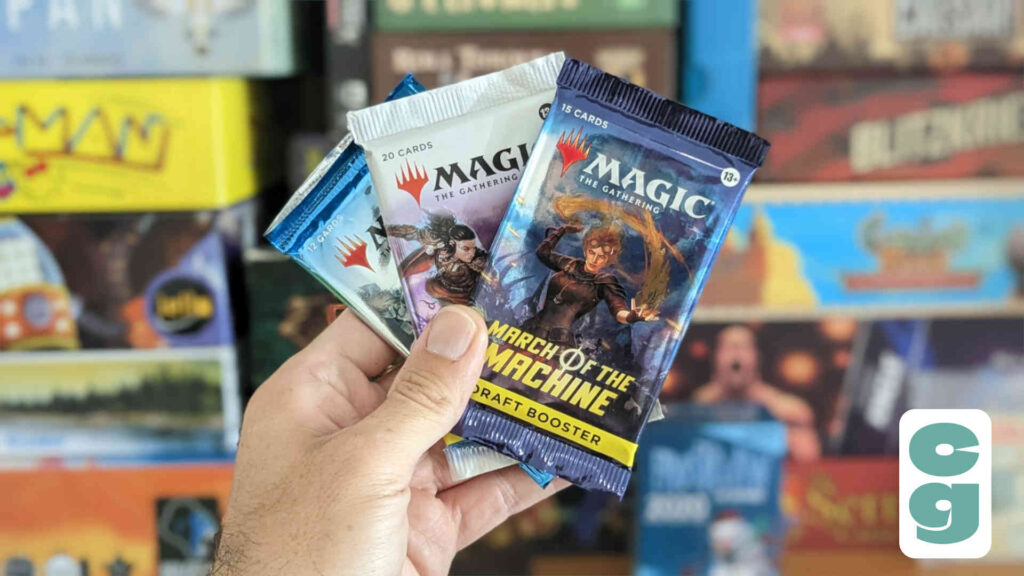
There’s absolutely no reason why you can’t keep buying and experimenting with new Jumpstart packs; it’s an addictive and fast paced way of playing MTG that needs absolutely no preparation time.
Yet if other formats pique your interest or deckbuilding is something you become interested in, there are other ways to play the game – and you can even take any or all of your Jumpstart cards to use in a Standard deck or other formats if you choose!
Commander is a hugely popular format in which players create a 100 card deck with a Commander (that is, a Legendary Creature card) whose Mana cost dictates which colours can be used in the deck.
It’s a step up from standard MTG, for sure – but it’s highly addictive and rewarding once you know what you’re doing.
Pre-built Commander decks are released for almost all new sets of MTG – and these provide a great starting point for new Commander players.
We’ve mentioned Draft too; this is not too different from Jumpstart, in that you’ll be making a 40 card deck from sealed boosters – in this case, three Draft boosters per player – but the twist is that you’ll pick a card from your pack’s selection, then pass the rest on to the next player, with you receiving your next cards from a different player.
This continues until all cards have been chosen and players then get a set amount of time to build a deck from their chosen pile of cards – and then pit their drafted deck against everyone else’s in rounds of MTG!
There’s even more formats to try and you’re almost certain to find MTG events running in stores or other venues near you, wherever you are.
Once you get hooked, there’s no going back – so enjoy your first steps into a larger multiverse with Magic: The Gathering!
